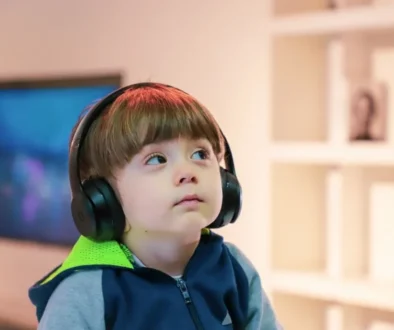Common Autism Myths, Debunked
Around 1 in 54 children have Autism Spectrum Disorder (ASD). As more understanding and research about this disorder comes to light, more children with ASD get the developmental care they need to succeed. Unfortunately, the autism community faces unfair misconceptions about the disorder. Take a look at these common autism myths to learn more about the consequences of ASD misinformation.
Myth: Vaccines Cause Autism
There’s no evidence that vaccines cause autism, and the uninformed study that started this myth was retracted. Despite this, people still think that vaccines and autism are linked.
This myth has led to an increase in unvaccinated children. This, in turn, increased the prevalence of rare diseases and contributed to an increase in death rates related to common illnesses like the flu.
Myth: Autism Is the Same for Everyone
Autism is a spectrum disorder, which means it’s different for everyone who experiences it. Since everyone with ASD is unique, some common signs may manifest differently.
For example, some people with ASD experience sensory overload more easily than others. The scope of developmental care depends on where someone falls on the spectrum.
Myth: Autism Means Low Intelligence
Assuming that everyone on the spectrum has low intelligence is wrong and harmful because ASD manifests differently for everyone. Getting an early diagnosis in-person or through telemedicine helps children cope with school and socializing before it becomes too overwhelming.
People with autism may present special interests on a certain topic or prefer repetitive tasks. Even if a person with ASD needs extra support and care, that doesn’t mean they’re unintelligent.
Myth: Autism Behaviors Never Improve
With proper care and dedication, autism behaviors improve over time. Nonverbal people on the spectrum enjoy learning sign language and visual cues to improve communication efforts.
Additionally, therapy and education tailored to someone with ASD immensely improve social behavior. Children with autism enjoy learning and socializing in an accepting environment and helps them gain independence.
Myth: People With Autism Can’t Make Friends
No matter where someone is on the spectrum, close relationships are common and encouraged. Social interaction difficulty is a common ASD trait, but it doesn’t mean relationships are impossible.
This difficulty presents itself in different ways, such as a preference for isolation, trouble understanding body language, and other similar traits.
The key is understanding the needs and preferences of each individual. If you want to become friends with someone who has trouble reading body language, try to speak clearly and express your feelings through words.
People on the spectrum may also feel easily overwhelmed by conversations and outside stimuli. Knowing this in advance helps prevent unintended over-stimulation. Any friendship takes teamwork, and being friends with someone on the spectrum is no different.
Myth: People With Autism Are Emotionless
People with autism are often mislabeled as emotionless because they often have difficulty expressing and reading emotions. Additionally, some people with ASD may experience social anxiety and act cold as a result.
By approaching someone with autism with an open mind, their personality will blossom. If you’re communicating with someone on the spectrum for the first time, try to gain an understanding of their preferences first.
While speaking loudly or touching may feel like normal aspects of a conversation, some people with sensory sensitivities won’t respond well to them. When in doubt, simply ask someone how they prefer to communicate.
Myth: Autism Is Only Diagnosed in Children
Even though most ASD diagnoses occur in childhood, more adults seek a diagnosis as education about the disorder increases. Diagnosing an adult with ASD is a bit different, as undiagnosed people on the spectrum often develop coping mechanisms like “masking” to handle their symptoms.
However, diagnosing early is helpful and helps children navigate their autism diagnosis in their teen years and adulthood. By getting your child tested, you get a head start on handling the diagnosis with expert specialists and at-home care.
An early diagnosis also helps prevent the need to mask symptoms. Encouraging healthy coping mechanisms early benefits people on the spectrum, as well as their friends and family.
Myth: People With Autism Can’t Work
People with autism are capable of working and often provide in-demand traits and skills that help them succeed in the workplace
Just like everyone else, people with autism have strengths and weaknesses. Finding a job that caters to these strengths makes employment easier for those who are on the spectrum.
For example, an autistic person with great memorization skills and a preference for repetitive tasks is well-suited for a job that requires these strengths, like acting, dancing, or engineering.
For anyone on the spectrum with difficulty socializing or processing stimuli, independent jobs are ideal. There are plenty of independent jobs out there that cater to these difficulties, such as writing, graphic designing, and accounting.
Myth: Bad Parenting Causes Autism
There’s no connection between bad parenting and autism. While the general cause of autism is unknown, factors like genetics may play a role in autism diagnosis.
Positive reinforcement and good parenting improve the signs of autism, especially if a child gets diagnosed early. Early intervention and therapy improve signs like verbal difficulties and social anxiety.
Myth: Autism Is Curable
There is no cure for autism, but that doesn’t mean improvement is impossible. People on the spectrum have to live with the disorder forever, but with proper education and autism treatment, they can live productive and successful lives just like anyone else.
Restrictive diets, vitamins, and medicine don’t provide a cure for autism and shouldn’t be considered an alternative to therapy and education.
Debunking Harmful Autism Myths
These uninformed myths spread harmful misinformation about autism. By debunking these autism myths, people on the spectrum gain the love and care they deserve. Getting an early autism diagnosis helps incorporate
If you think your child is on the spectrum, feel free to contact us and schedule an evaluation. Developmental Pediatrics offers comprehensive assessment and testing services that will help any questions or concerns you may have. We’re here to help.



